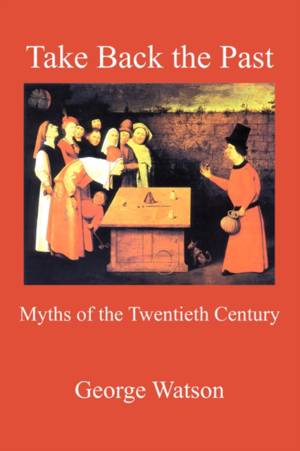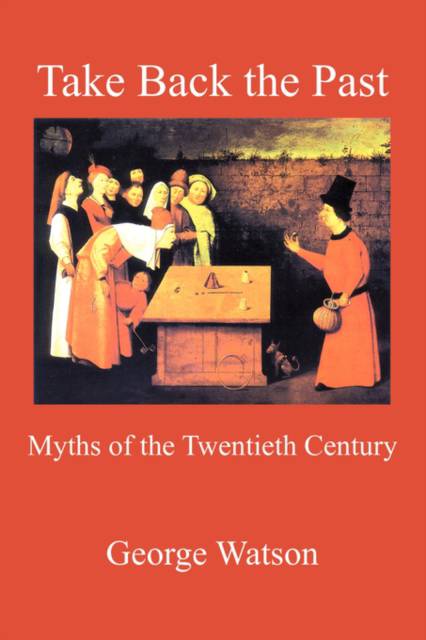
Je cadeautjes zeker op tijd in huis hebben voor de feestdagen? Kom langs in onze winkels en vind het perfecte geschenk!
- Afhalen na 1 uur in een winkel met voorraad
- Gratis thuislevering in België vanaf € 30
- Ruim aanbod met 7 miljoen producten
Je cadeautjes zeker op tijd in huis hebben voor de feestdagen? Kom langs in onze winkels en vind het perfecte geschenk!
- Afhalen na 1 uur in een winkel met voorraad
- Gratis thuislevering in België vanaf € 30
- Ruim aanbod met 7 miljoen producten
Zoeken
€ 28,45
+ 56 punten
Omschrijving
Critical theorists in our time sought foundations of knowledge because they knew there were none to be found, and critical scepticism became a convenient way of burying evidence and saving face. By now, however, no-one is interested, the audience has gone home, and the case for studying literature needs to begin again. It cannot start too soon. In Take Back the Past, George Watson considers the reasons for the apparent failure of the previous centuryis critics to find the theoretical foundations of critical judgement. He asks why is it more fashionable to look knowing than to know, and cites political and historical reasons for this lapse in knowledge and critical thinking. In this new study, a worthy addition to his work on the subject, Watson contemplates the collapse of socialism in the late 20th Century and how it lead to the denial of knowledge and the general degeneration of literary thought. 'My object here' - he tells the reader - 'is to find a way back to a sense of a unity of knowledge and the objectivity of judgement: to recover a radical purpose of literature.'
Specificaties
Betrokkenen
- Auteur(s):
- Uitgeverij:
Inhoud
- Aantal bladzijden:
- 192
- Taal:
- Engels
Eigenschappen
- Productcode (EAN):
- 9780718830670
- Verschijningsdatum:
- 22/02/2007
- Uitvoering:
- Paperback
- Formaat:
- Trade paperback (VS)
- Afmetingen:
- 156 mm x 234 mm
- Gewicht:
- 281 g

Alleen bij Standaard Boekhandel
+ 56 punten op je klantenkaart van Standaard Boekhandel
Beoordelingen
We publiceren alleen reviews die voldoen aan de voorwaarden voor reviews. Bekijk onze voorwaarden voor reviews.









